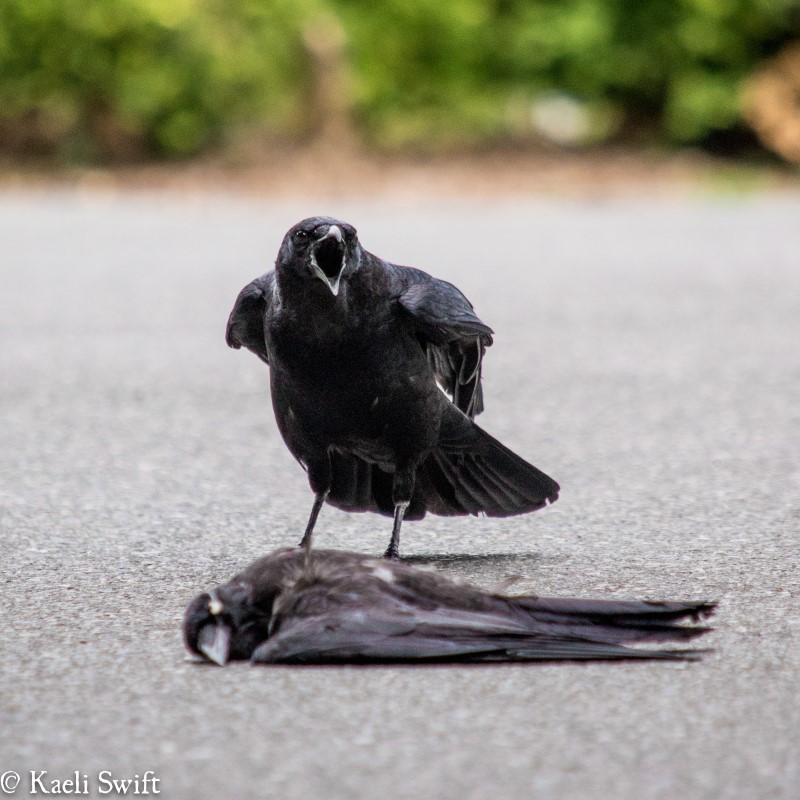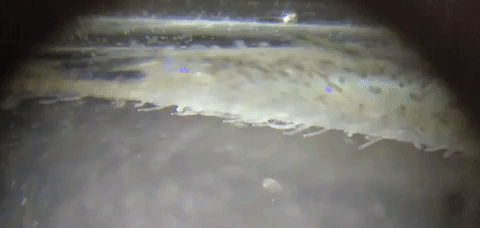New article examines how social distancing in response to disease occurs throughout the animal kingdom.

During the course of the Covid-19 pandemic, social distancing has been key in helping to stop the spread of the virus. Social distancing in response to disease occurs, not only in humans, but throughout the animal kingdom. Recognising infected individuals can be tricky so animals tend to use very general cues, like unusual appearances, to avoid others. However, reducing sociality in all species can be both costly and unsustainable. Proceedings B recently published a review on social distancing in response to disease in humans and other species. Lead author Andrea Townsend, an Associate Professor of Biology at Hamilton College, New York told us more about how the review came about and its key findings.
Humans are not the only social animal struggling with new infectious diseases. As a behavioural ecologist, I began studying the social behaviour of American crows. My work was complicated by West Nile virus, an emerging disease with devastating effects on crow populations. My research pivoted to an investigation of the effects of disease on crow social behaviour and it made me wonder how social animals should, in general, respond to novel diseases. Do other animals “socially distance” during disease outbreaks, like humans during the COVID-19 pandemic? Joined by disease ecologists Dana Hawley (Virginia Tech) and Jessica Stephenson (University of Pittsburgh) and evolutionary psychologist Keelah Williams (Hamilton College), I examined the behavioural responses to emerging diseases across the animal kingdom, in a review entitled Emerging infectious disease and the challenges of social distancing in human and non-human animals.
Emerging infectious diseases are particularly hard to avoid because their specific symptoms can be unfamiliar. However, as this review shows, some animals recognise general “sickness” cues like lethargy or unusual appearance, potentially allowing them to respond rapidly to novel pathogens. This overgeneralisation of sickness cues has a downside, however: it can lead to hypervigilance and xenophobia, particularly when an individual perceives itself to be vulnerable to disease.
In all species, reducing sociality has costs. Social isolation in humans might reduce the risk of COVID-19, for example, but human loneliness has been linked to an elevated risk of non-infectious disease. Solitary gorillas may be less likely to contract Ebola, but might experience higher risk of predation and infanticide. Less aggressive Tasmanian devils may be less likely to contract transmissible cancer from other devils, but may miss out on mating opportunities. Therefore, changing social interactions might not be a sustainable long-term response to infectious disease in all species.

Gyrodactylus turnbulli worms on a male guppy. Uninfected guppies avoid infected guppies in proportion both to the transmission risk posed by the infected fish, and (among males) their own susceptibility to disease.
Does technology help when it comes to dealing with social distancing? The evidence is mixed. Social media, for example, can exacerbate loneliness by making observers feel “less happy” by comparison. In contrast, however, synchronous virtual communication could reduce loneliness, buffering us from some of the negative health effects of social distancing during disease outbreaks.
What was your experience like publishing in Proceedings B?
Fantastic. Proceedings B is one of my favourite journals because of the breadth of topics that it covers and quality and novelty of its publications. It’s a privilege to publish in the Proceedings B.
Proceedings B is looking to publish more review articles across all areas of biology. If you have an idea for a review, information on how to submit your proposal to us can be found on our website.
Image credits
American crows are sometimes attracted to the carcasses of dead crows. Photo by Kaeli Swift.
Guppy video by Jess Stephenson.

